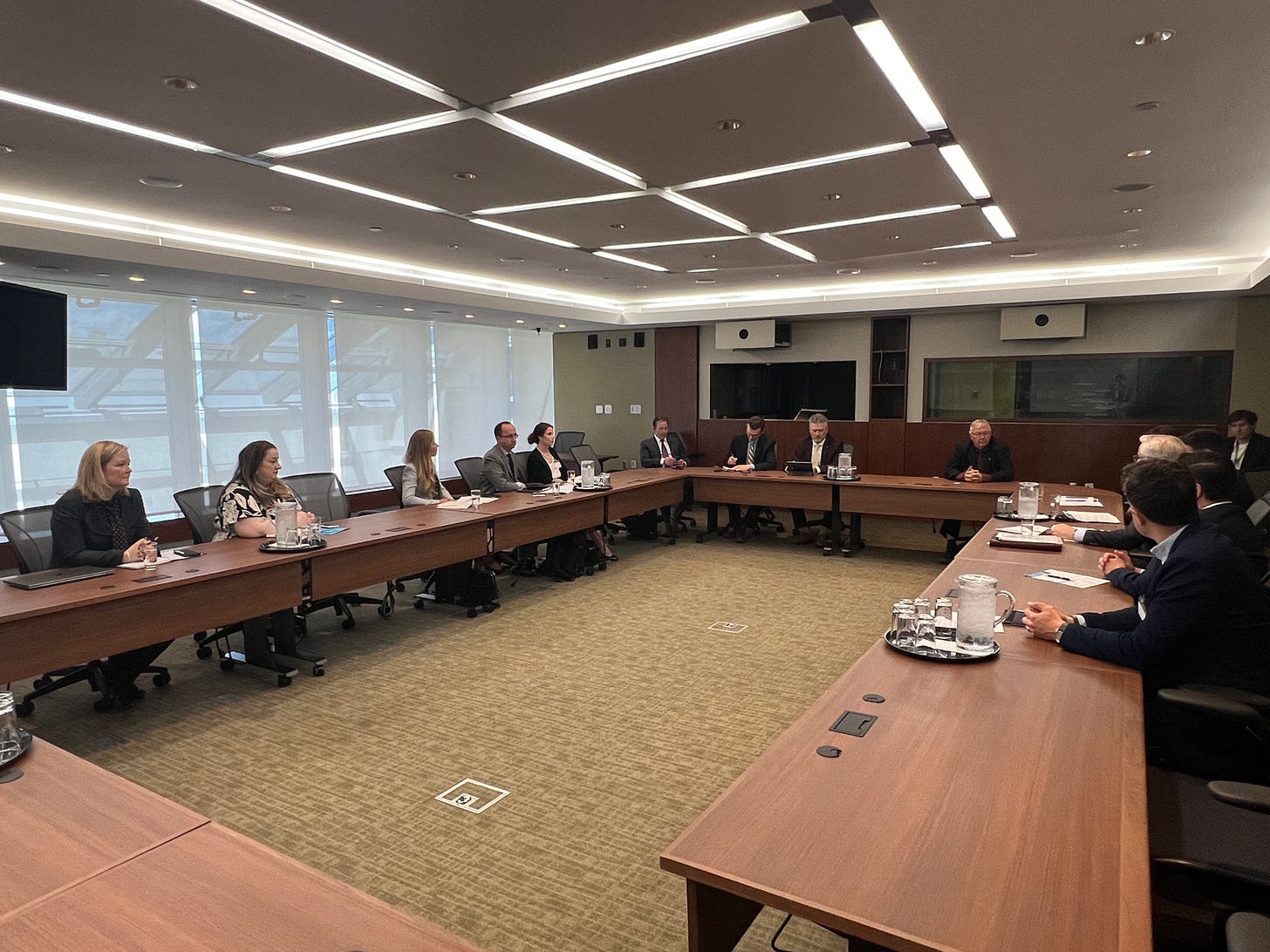The Pharmacare That Wasn’t
Plus, housing starts are slowing down across the country, NDP-Liberals shut down Conservative legislation to fight extortion, tabling a petition to hold a confidence vote, and more.
The NDP-Liberal government's pamphlet of a pharmacare bill rollout has been a disaster, to say the least. Taxpayers will be paying tens of billions of dollars for a pharmacare plan that cover medication for only two medical conditions and not all medications for those two conditions. All current private and public insurance plans cover more today than this pretend national pharmacare plan. Both NDP and Liberal MPs are misleading Canadians when they try to sell their bill as "universal pharmacare coverage" when, in fact, it only covers very few items, such as some diabetes medication and likely some contraceptives. That is of course, therefore, not truly universal pharmacare and more over both Alberta and Quebec have made clear they will opt out of this national plan. Instead they want the associated monies to boost their own provincial public plans. One particular area this bill does not cover is rare disease medications, such as for Canadians who may be living with phenylketonuria, cystinosis, and Multiple Sclerosis (MS), which is perhaps the most common rare disease in Canada. In fact, to my surprise, "rare disease" was only mentioned once in the bill. As many of you know, the issue of rare diseases is dear to my heart as it has affected my family and close friends. I have advocated for reforming the approval process of drugs for rare diseases in Canada and how patients can access them since being elected. While I will not be voting for this bill, I am open to debate on improving access to rare disease medications. The hardest medication to get in Canada remains the one not offered for sale or distribution in Canada because of our heavy red tape burden and complex approvals.
The NDP-Liberal government is not open to debating their pharmacare bill as they have now forced a motion through Parliament that will see less than 10 hours of committee consideration and a rushed amendment process that is flawed and lacks transparency. This means that opposition parliamentarians have less time to study the bill in committee, less time to ask expert witnesses on what amendments would be necessary, and less time to debate those suggestions. The Liberal health minister won't even commit to answering questions on this consequential legislation he proposed. A common accusation has been that conservative MPs have held up the law however it was only made public in late February 2024 and offered up by the government for only 3 days of debate. Moreover, the Liberal health minister took only 2 days between publicly stating there would be lots of time for debate and then bringing in a gag order on Parliament and the parliamentary health committee to rush the pharmacare law.
This legislation only meets the political needs of the NDP-Liberal coalition by their own admission in public statements and parliamentary debates. It was their secret negotiations that led to its contents and we are now being ordered to accept this flawed, potentially costly and disruptive pamphlet of pharmacare in a rushed manner.
Watch my full speech in the House of Commons here:
Speaking of rare diseases, I organized a roundtable with MP Stephen Ellis, a doctor and fellow Conservative, MP Blaine Calkins and Earl Dreeshen, where we both went into further depth on the challenge of getting rare disease medication approved and available to Canadians. We have both met with leading experts and stakeholders who have insight into how the current approval as well as reimbursement system works, and it is clear that Canada has some catching up to do with other countries when it comes to accessing medications. Less than half (46%) of new medicines have been able to launch in Canada. In comparison, 59% have launched in the United Kingdom, 61% percent in Germany, and 85% in the United States. The impacts of these delays in patient access to rare disease medicines are leading to missed opportunities to increase the quality of life for Canadians, fewer life sciences investments, clinical trials, and drug launches, and increased strain on our health care systems. Our federal and provincial health bureaucracies have unnecessarily made the approval process for these rare disease medications complicated, where there is a lack of harmonization among government regulatory agencies.
Housing starts are decreasing year-over-year and falling at a faster rate in Canada's largest cities, according to new numbers released by the Canada Mortgage and Housing Corporation (CMHC). The recent report states that the seasonally adjusted annual rate of housing starts in Canada was 240,229 units for April, down from 242,267 in March. In Toronto, starts in April 2024 were 38% lower than they were in April 2023, and in Vancouver, where over 100% of the median household income is needed just to cover housing costs, starts are down 30% year-over-year and 7% year-to-date. In the last edition of Resuming Debate, I highlighted how the NDP-Liberals were already falling behind their own metrics and standards to build homes, which is already lower than what is needed to restore housing affordability by 2030. These new numbers confirm that this government cannot deliver home affordability to Canadians, many of whom have already given up on the dream of owning a home. Since forming government in 2015, the Liberals have announced over $100 billion in funding to build new homes, but the only thing they have to show for it is a devastating housing crisis. Not surprisingly, the NDP-Liberals are taking zero responsibility for their failures and are actually rewarding CMHC executives. This includes a retroactive raise of almost $80K for the outgoing CEO of CMHC, who did an abysmal job bringing housing affordability.
The NDP-Liberal government voted down a Common Sense Conservative Bill to keep extortionists out of jail this past week. Fellow Conservative and Albertan MP Tim Uppal recently introduced Bill C-381, a private member's bill, which would increase the mandatory minimum sentence for criminals who commit extortion. The rate of extortion is now five times higher than it was a decade ago. Ontario has seen a 263 percent rise in extortion cases, while Alberta and British Columbia have seen extortion rise by 284 percent and 386 percent, respectively. Many Canadians, particularly newcomers, are vulnerable to extortion from overseas criminal organizations, which undermines Canada's reputation as a safe and orderly society. The NDP-Liberals had a chance to protect vulnerable Canadians from extortionists but instead will continue to further allow Canada to become a safe haven for organized crime and gangs while Canadians will continue to lose trust in our criminal justice system.
Crime is skyrocketing across Canada and is hitting close to home for many. My fellow Conservative colleague, MP Marty Morantz from Winnipeg, recently shared a heartbreaking story in Parliament of restaurant owner Kyriakos Vogiatzakis, Kyri for short, who was murdered in cold blood in his restaurant. According to Marty, he was beloved by everyone in the community and gave back to those in need by donating food hampers every Christmas. What makes this murder more infuriating is that the accused assailant was on probation, with a record that included court order breaches, drug possession, possession of a weapon, uttering threats and obstructing or resisting a peace officer. This is another tragic reminder of how Canada's justice system has become a revolving door because of the radical criminal justice reforms made by the Liberals over the past 9 years.
After nine years of this NDP-Liberal government, more Canadians are hungry and homeless. I spoke in Parliament on Friday about the disturbing reality that many Canadians are facing when it comes to food and home insecurities. According to a recent report from the Salvation Army:
68% of Canadians purchase discounted food items/shop at discount food or grocery retailers, compared to 64 % in October 2023;
40% of Canadians buy less nutritious food because it is cheaper, compared to 37% in October 2023;
An astonishing 26% of Canadians skip or reduce the size of at least one meal because they cannot afford to buy groceries, compared to 21 % in October 2023;
It is clear to Canadians that this NDP-Liberal government is not worth the cost, and it is time for a Common-Sense Conservative government that will deliver on lowering the cost of living.
Watch my statement in the House of Commons here:
The Liberals have responded to your petitions that I presented in Parliament. One petition I presented was regarding the Calgary Co-op Compostable bags that contain 0% plastic and are 100% compostable bags that this government has lumped into their ban on single-use bags. This means that Calgary Co-op bags can be sold on store shelves but not a few feet away at the checkout. The Liberal government's response to the petition was disappointing, as it did not acknowledge Calgary Co-op's efforts to give consumers an environmentally friendly choice and implied that their bags were not 0% plastic.
The second petition I received a response for was asking the government to stop the expansion of euthanasia to include persons living with mental illness. While the Liberal government said it had delayed euthanasia on the basis of a mental illness alone, remaining prohibited until March 17, 2027, it did not commit to making it a permanent ban.
The last petition I received a response for was to call for a vote of no confidence against this NDP-Liberal and a federal election 45 days following the vote. The Liberal government did not seem interested in holding a confidence vote and instead touted their failed policies before saying they were "proud" of their record. After nine years, can Canadians really say they are better off when we are facing a crushing affordability crisis that extends to food, housing, and other essential items? I think Canadian voters would beg to differ.








